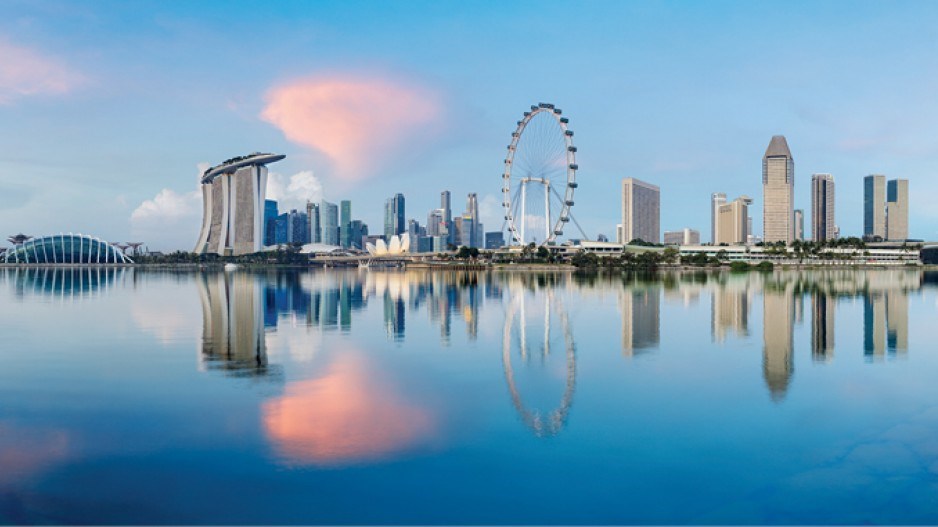Singapore's reputation as one of the most safe and sound centres for business in Asia is being threatened by a rising tide of resentment against foreign workers, who now make up about 40% of the Lion City's 5.4 million population.
The government of Prime Minister Lee Hsien Loong, whose policies of encouraging immigrant workers as a way to boost economic growth have caused the situation, is struggling to deal with the social discord.
In the past year there have been protests, and earlier this year even a riot, on both sides of the argument. Singaporeans have marched to draw attention to what they say is the stealing by foreigners of jobs for which locals are perfectly qualified. Meanwhile, foreigners, especially Chinese and South Asian imported labour working in construction and similar industries, have marched and sometimes rioted in protest at their exploitation.
However, Singaporeans' resentment is aimed primarily at the white-collar and managerial employees imported by foreign and local companies working in the financial, investment and services industries, which are at the core of the city-state's success and reputation as a centre from which to do business in Asia. The wave of xenophobia sweeping Singapore holds the prospect that it may lose some of its attractiveness to foreign investors and international companies seeking an Asia base of operations.
In a new book on Singapore, Michael Barr of Australia's Flinders University argues that the wave of anti-foreigner sentiment is a natural consequence of the racially structured society, made up of the ethnic Chinese majority and Malay and South Asian minorities, that the government has fostered since the 1970s.
The current problem goes back to 2005, when the government decided to encourage immigration by foreign workers to head off an anticipated recession. But the government failed to cater to its own population expansion plans by providing the physical and social infrastructure necessary.
The result has been growing social tensions, which appeared on the political stage in 2011, when the opposition won an unprecedented six seats in the 99-seat parliament. Singapore's elections are usually carefully crafted so that the ruling People's Action Party is not seriously inconvenienced by opposition. As a result of the Singapore government's passion for political and social engineering, it usually ignores or smothers evidence of popular discontent. But that has not been an option with the antipathy toward foreign workers.
In all his national day speeches since 2009, Prime Minister Lee has warned Singaporeans against xenophobia. He has been especially critical of the use of social media posts hostile to foreigners. "Very few people stand up to say this is wrong, shameful, we repudiate that," he said in his 2012 speech.
Late last year the government introduced new regulations, which will come into force in August, in an effort to curb the importation of foreign workers in middle-ranking white-collar jobs paying the equivalent of $2,500 a month or more. Employers must advertise job vacancies on a government agency website for two weeks before they will be allowed to apply to hire a foreign worker.
Singapore's Ministry of Manpower anticipates these regulations will mean that by 2030 up to two-thirds of these skilled, professional and managerial jobs will be filled by Singaporeans. That represents 1.25 million Singaporeans in these better-paying jobs, compared to 850,000 now.
The government, though, is clearly sensitive that its new regulations may turn off potential foreign investors or businesses. "We don't require global firms to give preferential treatment to locals, but they must be fair to Singaporeans," Manpower Minister Tan Chuan Jin said recently. "There must be equal opportunities for our people, whether at hiring or in advancement. There has to be a level playing field." •
A bad case of Justin Bieber Syndrome
In Hong Kong they are called the "Filth" – Failed In London Try Hong Kong.
But whatever their personal histories or bases of operations, young financial wizards who have become far too rich far too young have filled the glittering office towers of Asia.
Some find it difficult to keep the adulation of their success in perspective and are overcome by what might be called Justin Bieber Syndrome.
This involves overpowering feelings of entitlement and the abandonment of whatever rules about good manners their parents may have taught them.It was elements of this syndrome that appear to have led British banker Anton Casey, 39, a wealth manager with Crossinvest Asia, to flee Singapore in January. Casey, who is married to a former Miss Singapore, Bernice Wong, and who has lived in the Lion City for 12 years, fled after saying he had received death threats.
Casey's problems are of his own making. He excited the anti-foreigner sentiments simmering in Singapore when he made some derogatory comments on Facebook (Nasdaq:FB) that swiftly went viral. In one he bemoaned his Porsche being serviced because it meant he had to put up with "the stench of public transport."
In another he questioned the mental capacity of a taxi driver. And he posted a picture of his son sitting on a subway train with the caption, "Daddy where is your car and who are all these poor people?"
Casey's online sneers did not amuse his employer. Crossinvest Asia said in a statement, "The comments made by Mr. Casey do not represent the culture that we have built over many years. Accordingly, Crossinvest Asia and Mr. Casey have parted ways with immediate effect."
Losing his job may not be Casey's only problem in Singapore, which he says he considers his home. A complaint against him for "sedition" has been lodged with the police.




